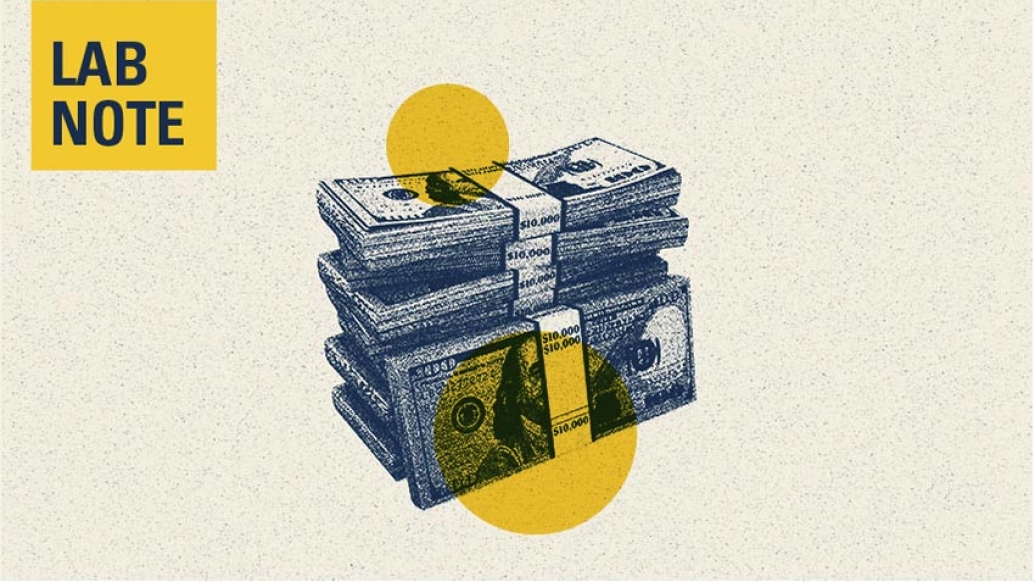Even when insurance companies were waiving COVID-19 hospitalization charges, 10% of patients faced $2,000 or more in costs within 6 months of leaving the hospital.
10:11 AM
Author |

Millions of Americans have needed hospitalization for COVID-19 since the pandemic began, including hundreds of thousands in the recent Omicron surge.
And on top of the bills for their hospital care, a new study suggests that many of them could face hundreds or thousands of dollars in costs after they leave the hospital.
The new study comes just a month after a previous one from the same team showed that getting hospitalized for a serious case of COVID-19 could mean hospital bills averaging $1,600 to $4,000 for many patients.
Now, the team has looked at costs for the health care that patients needed in the six months after their first COVID-related hospitalization. On average, patients with private insurance had bills just under $290, and those with Medicare Advantage were asked to pay around $270, suggesting that most patients had modest costs.
But for nearly 11% of privately insured patients and 9.3% of people covered by Medicare Advantage, the first six months after a COVID-19 hospitalization brought bills totaling $2,000 or more.
For people hospitalized in 2021 and 2022, these costs were likely higher, the researchers note. That's because the data come from 2020, before insurance companies rolled back temporary voluntary waivers that had protected patients from out-of-pocket costs for COVID-related hospitalizations, including COVID-19 readmissions.
Writing in the American Journal of Managed Care, the team of health care researchers from Michigan Medicine, the University of Michigan's academic medical center, and Boston University Questrom School of Business describe findings from their analysis of out-of-pocket costs billed to patients hospitalized for COVID-19 in March through June 2020. Bills through December 2020 were included.
For both the privately insured and Medicare Advantage populations, out-of-pocket costs for post-discharge were driven by additional hospitalizations, procedures, and prescription drugs.
The authors also looked at post-discharge bills among a comparison group of patients hospitalized for non-COVID pneumonia during this same time. The pneumonia patients actually had slightly higher out-of-pocket costs, potentially because most insurers waived out-of-pocket costs for COVID-19 readmissions in 2020.
"Although post-discharge out-of-pocket costs were modest for most COVID-19 survivors, about 10% of patients paid more than $2,000. These costs will be on top of the large bills for COVID-19 hospitalization that patients are now getting, owing to the expiration of insurer cost-sharing waivers. The collective costs of hospitalization and care after discharge could result in financial toxicity for thousands of Americans," said Kao-Ping Chua, M.D., Ph.D., the study's lead author and an assistant professor of pediatrics at the U-M Medical School.
The authors call on insurers to reinstate waivers for COVID-related hospitalizations, to reduce the financial toll on patients and reduce the chance that people with COVID-19 will avoid seeking care out of cost concerns.
Chua is a member of the U-M Institute for Healthcare Policy and Innovation and the Susan B. Meister Child Health Evaluation and Research Center. Other co-authors were Nora Becker, M.D., Ph.D., an assistant professor of internal medicine at the U-M Medical School, and Rena Conti, Ph.D, an associate professor at Boston Questrom University School of Business.
Paper cited: "Out-of-Pocket Spending for Health Care After COVID-19 Hospitalization, American Journal of Managed Care," American Journal of Managed Care.

Explore a variety of healthcare news & stories by visiting the Health Lab home page for more articles.

Department of Communication at Michigan Medicine
Want top health & research news weekly? Sign up for Health Lab’s newsletters today!





